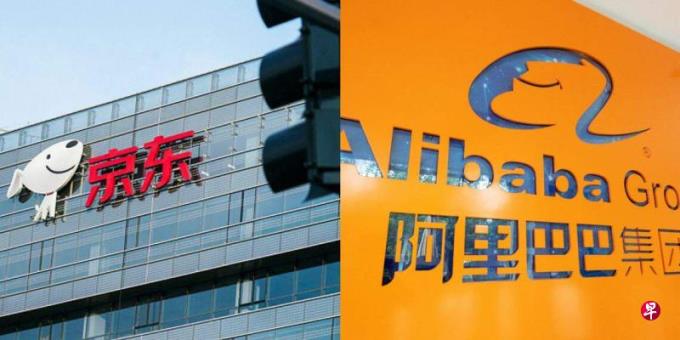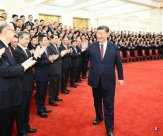
(Beijing Comprehensive News) Jingdong, a giant of Chinese e -commerce companies, sued the first trial of the "Two Selection and One" case of Alibaba, which won the first instance of the case, and received 1 billion yuan (RMB, the same below, S $ 187 million).
JD Group issued the above -mentioned victory statement on its WeChat public account "Jingdong Black Board" on Friday (December 29). In response to the Securities Times inquiries, Alibaba said that the news had been learned and stated that the court's decision was respected.
Jingdong quoted the Beijing Higher People's Court's judgment in the statement stating that it was determined that Zhejiang Tmall Network Co., Ltd., Zhejiang Tmall Technology Co., Ltd., and Alibaba Group Holdings Co., Ltd.Established, causing serious damage to JD.com and judging to compensate JD.com 1 billion yuan.
Jingdong's statement said that the judgment was not only a fair ruling for JD's resistance to the "two -choice" monopoly act, but also the iconic moment of maintaining fair competition in the market in the rule of law.China News Weekly quoted industry insiders that this judgment has a record of compensation and has a demonstration effect.
The dispute between the two major e -commerce platforms of Ali and JD.com can be traced back to June 2013. A JD executive broke the news, saying that the merchant was asked to be "two -choice" by Alibaba.
In 2015, JD will sue Tmall to the court, saying that Tmall requires brand merchants not to participate in promotions such as 618, Double 11, and other promotions in JD.com, do not open stores in Jingdong Mall for operation, or even on a platform on Tmall MallOpen a store for business behavior, referred to as "two -choice" behavior.
This is also the second time Alibaba was fined for the second choice.In December 2020, the Chinese market regulatory authorities were investigated on monopoly behaviors such as Alibaba's "two selections".
The results of the survey stated that Alibaba implemented the "two -choice one" behavior, eliminating and limiting the competition of the online retail platform service market in China, hindering the free circulation of commodity services and resource elements, affecting the economic innovation and development of the platform, infringing the infringementThe legitimate rights and interests of the merchants in the platform have harmed the interests of consumers and violated the antitrust law.
The State Administration of Market Supervision of China made Punishment Decision , ordered it to stop illegal acts and fined 18.228 billion yuan, which is the highest amount of fines in the Chinese antitrust bill.




